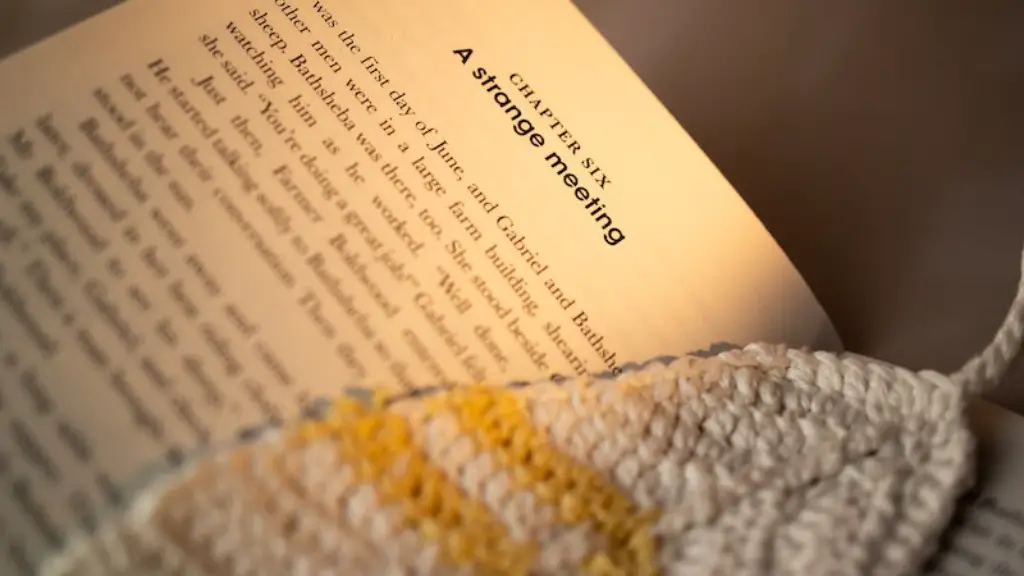Research Information About the Genre
Before submitting a poetry manuscript, it is important to research the publishing industry to have an understanding of the market the work belongs to. Ask questions and gather information about what type of poetry is commonly published and what publication opportunities are available. Knowing this will help the author target the right markets for the manuscript. It is also useful to pay attention to events and other writers who are active in the community to gain insigts about the current trends for the genre. Additionally, staying informed and reading related publications, such as blogs and magazines, can help the author have a better understanding of the industry.
Create the Poetry Portfolio
When submitting poetry manuscripts, it is important to create an individual portfolio for each submission. The portfolio should include a cover page, title page and page of contents if the manuscript is more than one page. The portfolio should also include samples of the publishing applicant’s best work, list of other works published, the author’s biography and contact information. Additionally, attaching the author’s headshot to the portfolio might be a good idea as well, as it can help the publisher to have a better idea of who the author is.
Polish the Poetry Manuscripts
After the poet has created his or her portfolio, it is important to make sure the manuscript itself is polished and ready for submission. Poor grammar, misspelled words and unclear ideas can be a major obstacle when submitting a poetry manuscript. Therefore, it is important to invest enough time to revise, proof and edit the manuscript before submitting. In some cases, it might be a good idea to seek a writing group, mentor or workshop in order to get feedback and further refine the work.
Find the Right Market For the Poetry Manuscripts
When ready to submit, it is important to find the right market for the poetry manuscript. There are numerous options available, from literary magazines, journals, book publishers and anthologies, to online publishers and literary competitions. Authors should research each market individually and target their manuscript to the specific publisher or contest. It is also important to keep in mind that some publishers prefer previously unpublished work, while others might be open to work that was published elsewhere.
Submission Process
Once the author has found the market for the manuscript, it is time to start the submission process. Generally, each publisher has its own set of guidelines that must be followed when submitting. Common requirements include a cover letter, biography, manuscripts and proof of payment of the submission fee. It is also important that the author read the publisher’s guidelines carefully and adhere to them to make sure the manuscript is submitted correctly.
Communication With the Publisher
When a poetry manuscript has been submitted, the author must allow the publisher a sufficient amount of time to review and consider the work. Most publishers take anything from a few days to several months to read and respond to a submission. Therefore, it is important to keep in mind that it can take sometime before the author receives a response from the publisher. In some cases, authors might receive an invitation to make changes and submit the revised version of the manuscript.
Personality and Professionalism
When dealing with a publishing house or editor, it is of utmost importance to maintain a professional and polite attitude. Always introduce oneself and start the communication with a friendly and courteous way. It is also beneficial to use proper salutations and sign off gestures when corresponding. Additionally, demonstrating knowledge and enthusiasm for the work will make it easier for the editor or publisher to relate to the author.
Making a Decision
When a publisher considers the material for publication, the author might receive multiple offers. In such cases, the author must decide which offer to accept. Before deciding, the author should consider a number of things, including the payment offered and the publication’s visibility. Additionally, it might be a good idea to ask for advice from other authors to know what kind of offer is best for them.
Exploring Further Publication Opportunities
Once a poetry manuscript has been accepted and published, the author must start exploring other publications that can feature their work. Apart from pitching their work directly to the publications, the author must use social media platforms and other outlets to promote their work and reach a wider audience. Additionally, spending some time attending related events and meet-ups, such as readings and workshops, can also be beneficial in finding further publication opportunities.
Cultivating a Network of Business Contacts
Networking is key in the poetry publishing industry, and it is more important than ever for poets to cultivate a network of business contacts to help them find publishing opportunities. Observing what other authors are doing and connecting with them on social media platforms can help poets to gain insight and knowledge about the industry and the type of work that is currently in demand. Additionally, attending and presenting at workshops and panel discussions can also help poets to meet editors, agents and other industry professionals.
Understanding the Legal Relationships Involved
Before formally entering into any publication agreement, authors must have a clear understanding of the legal relationships involved, such as with the publisher, writers, editors and agents. Knowing who will own the copyrights of the work and all the other rights associated with the publication will help the author protect their work in the future. Additionally, it is important to know when and how the author will be paid for their work, as well as their rights to use the published work in other forms of media.
Planning For Promotion After Publication
Having a plan for promotion after the publication is essential, as this will help the author spread the word about their work and build their presence in the market. Authors must find ways to promote the work online and offline, through outlets such as websites, blogs, press releases and book reviews. Additionally, finding ways to reach out to the existing fan base and potential readers would be beneficial as well.
Making the Most Out of The Publication
After the work is published, the author must make the most out of the publication by leveraging it to find more writing and publication opportunities. This can include submitting works to other publications and contests, submitting related work to anthologies, submitting work to educational advisory councils and exploring other writing roles, such as copywriting and scriptwriting. Additionally, authors can find ways to self-promote the published work and build their brand.



